Benefits of an Effective On-Boarding Programme
The hiring process is complete, and your new employee has accepted the offer and signed the contract. They’ve passed your technical tests and are a good organisational fit with your company and team. You might think the hard part is over but there is still plenty you can do as a responsible, pro-active employer to support your new starter.
Put yourself in their shoes, they’re taking a huge risk to join you, leaving people behind and joining a completely different culture. Take the time to stay in touch during their notice period, invite them to team events and social gatherings, bring your culture to life and keep the enthusiasm high – it makes for an excited, committed and engaged new team member! It’s also important to think of the technical side too, training and integration into your team. The best way to do this is through a detailed and structured onboarding process.
Good onboarding procedures are cost-effective, efficient and improve employee satisfaction, making it easier for you to attract and retain the best technology talent to stay competitive in the future. According to TechJury, 69% of employees who experience thorough onboarding processes are likely to stick with a company for three years or more. That means lower staff turnover and lower recruiting costs!
You are also creating teams that are more productive and efficient. In fact, structured onboarding can make a new hire up to 70% more productive! But how should you go about creating an onboarding plan that works for both you and your new technology employees?
How to onboard a new employee in your tech team: 5 tips for success
We know that HR & hiring managers have a lot to do and can often feel even more pressure when onboarding employees. However, a lot of the work can be done prior to their official start date, allowing you to get everything you need in place to allow your new employee to hit the ground running and start contributing to your team right away. Set your new employees up for success by:
Organising pre-boarding
There’s nothing worse than starting a new job in technology and spending the first week trying to get access to software, setting up your workstation (or remote laptop) and doing paperwork for HR. Taking some time before your new employee’s first day to ensure they have the equipment they need, have access to any passwords and have been sent their first week’s onboarding plan will ensure a smooth first day and week for them. This is especially important if employees are working remotely.
Setting up informal meet and greets
Taking some time to foster initial connections with other employees across the organisation can help new employees get up to speed with who does what and get a wider understanding of other employees’ responsibilities. You might like to arrange one-on-one introductions with the team members they’ll be working closely with and informal chats with small groups of other employees. This can be a stress-free way to meet people outside of more formal and high-level meetings.
Connecting new employees with a mentor
Establishing mentorship relationships for new employees with existing members of your team can help ease the transition into your organisation. Mentors should be people that perhaps do not have a direct working relationship with their mentee to provide an unbiased source of support. It’s also a great way for new hires to build trust and network with senior management.
Breaking down your onboarding plans
Good onboarding plans should be broken down, initially by week, and include detailed learning objectives that allow new employees to build confidence and take on large amounts of information. They will then be better positioned to take on greater autonomy further along in the process. Ensure you build regular check-ins into the onboarding structure to allow the chance for two-way feedback.
Integrating different types of learning
Whilst technical learning is critical for new hires in tech teams, onboarding plans should also include other kinds of learning that will help new employees have a well-rounded understanding of working in your organisation. Types of knowledge to cover in your onboarding plans are:
1. Product, systems and processes overview
2. Customer insights and historical behaviours
3. The values and behavioural norms of your organisation
4. The organisations’ structure and decision-making processes
5. You should also consider how you tailor your on-boarding plans for each individual employee and who is best placed to impart that information.
About NP Talent Solutions
At NP Talent Solutions, we challenge the status quo of the global talent market. We provide bold solutions, creative approaches and, above all, collaboration. We don’t believe in transactional recruitment relationships, focusing on forging close partnerships with all our clients.
Our consultants are highly knowledgeable in the industry sectors and technologies they serve and provide a consultative, advisory service tailored to you.
If you are looking for recruitment or on-boarding advice, please contact us.
e: [email protected]
t: +44207 953 0000
w: www.nptalentsolutions.com




